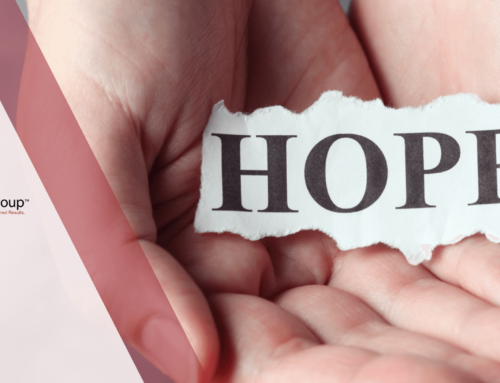As we admired the north flank of the main chapel at Wat Chedi Luang in Chiang Mai Thailand, we came upon a most unexpected surprise on a cardboard sign reading “monk chat” hung from a cloistered area to our right. Our group of five sat in front of a 24-year-old monk from Mumbai who—as I’ve seen most Buddhist monks do—had such conviction and clarity in his words that sudden, practical insights were ignited in me that I never would have contemplated back home.
In our conversation, he explained in detail the three poisons—greed, hatred, and delusion—which he claimed to be generally everyone’s barriers to enlightenment, including his own. I have pondered and digested his guidance and translated them into areas of my life. Some are areas of pride and some still need work, but regardless, I truly hope they will benefit you.
- Greed – Glen and I decided long ago to create a home-based work style with the ability to leave for extensive travel. Yes, it is easier said than done, but like everything, when you replace your desires with true intention, the impossible becomes possible. We went from homeowners to renters. Our cars went from shiny and new to now one 14 and the other 15 years old. And we live in South Florida, the land of materialism and the new and shiny. Alas, as our cars got older and our wardrobes went from designer to anything but, we heard not a peep from anyone. At the risk of being blunt, your need for shiny and new will only impress those who are lost in that same world. And now that we have come back from a long trip, the same people who chase the shiny and new are the ones who “couldn’t possibly take a three-week vacation” like we did. In fact, your life is like a car. When we had fancy cars, we had to feed them fancy gas. When the bells and whistles broke—with more frequency than a cheap car, in fact—we realized they cost three times more to maintain. What is your dream? Do you also want to travel extensively? Do you want to invest the time to learn the guitar? Do you want to train to climb a mountain? Do you just not have the time or money? Stop working for the shiny and new, and invest in fulfilling experiences. Oddly enough, the less shiny you have in your life, the more new it can become.
- Hatred – I’ve never thought of myself as someone who exhibited hatred. Yet, he explained that hatred manifests itself through many different channels and at different levels of intensity. Anger, depression, and a lack of forgiveness and/or compassion are just a few. For example, at first, I found it very difficult to share with others that I had left my full-time job to pursue the lifestyle for which I longed, particularly in a business setting, even though I knew what I was doing aligned with my core. My identity was so wrapped up in my past and titles that I struggled to find value in being verses doing. I still valued my accomplishments and ability to produce immediate results. My journey to create a new life was anything but brief, and I beat myself up in the meantime. To others, my reduced love and compassion for myself made me seem less loving and tolerant. And alas, the monk, unprompted by me, claimed the first step in loving and respecting others is the removal of all your own hatred and criticism of yourself. In hindsight, he was completely right. Only when I had intentionally stopped and meditated on my issues years and years ago did I find for myself exactly what the monk said was true, and I was able to right my ship. Are you experiencing hatred—or some level thereof—in your life? Then it likely might be time to turn inward. It can truly be scary, but the rewards are astoundingly powerful and lasting.
- Delusion – The media’s portrayal of this planet gives so much opportunity to breed this in our lives. I find this topic cliché, but the insights I have developed from my conversation with the monk are anything but. People watch the local news to see what’s happening in “your world now.” But how much of the local news is actually happening on your doorstep—in your neighborhood? Glen and I have lived in heavily populated areas for 20 years, and if a news truck shows up, it’s a unique head-turning experience. How can the local news be telling us what is happening in “your world now” when they barely come into our world in the first place? The Law of Correspondence says that the same thing holds true with world news, and it’s even harder for us to realize because it’s so far away. What happens in the news is not “our world,” but rather compelling, extraordinary content that we, in fact, can’t find in our every day. Your world in your mind is likely not the world outside of it. For example, tourism is down in Thailand due to political unrest. We walked its streets for three weeks feeling completely safe and hired some members of the hill tribes to truck us two hours into the jungle for a six-hour trek through the jungle where we encountered not one other soul. Our friends and family said, “The terrorists will get you!” when we went to Egypt. Two complete strangers took just the two of us camping 200 miles into the Egyptian White Desert in a sputtering Toyota Land Cruiser, one of the most fascinating experiences of our lives. They were absolutely wonderful and gracious. Living in Costa Rica for an extended period, our only sense of danger was our own ignorance in navigating the jungle, not the locals that folks at home claimed would rob us or worse. Take a moment to consider that “your world now” is really not what you think. Find yourself turning your back on experiences haphazardly and throw yourself into them instead. My experience says you will be rewarded multiple times more than not.
Thank you for following me down my spiritual journey stemming from my monk chat. The beautiful thing about mental poisons is that when we understand and acknowledge them, we are able to administer our own antidotes. I wish that and more for you.
This article originally appeared on Psychology Today April 06, 2015





